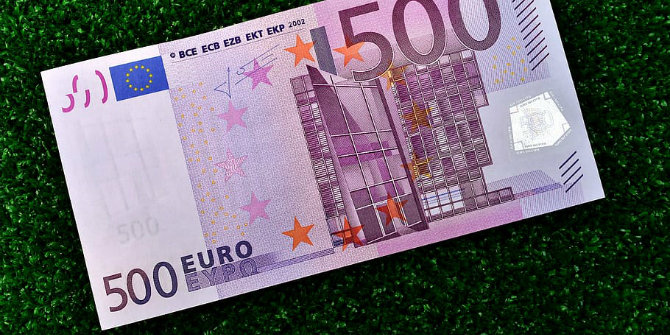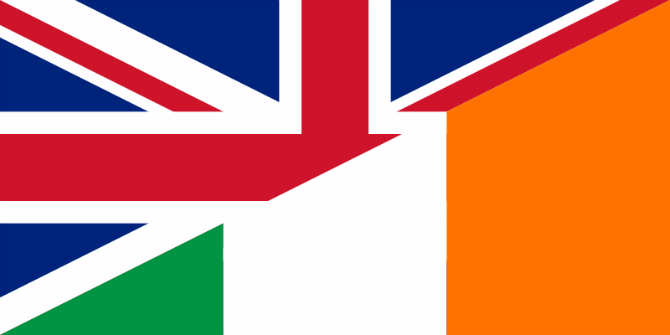It is quite all right to hate democracy. T. F. Rhoden dislikes democracy immensely. Without classical liberalism, he argues, it is normal to mistrust democracy in its purer form. Democracy is dreadful without the classifier “liberal” in front – because liberalism is a safeguard against democracy’s inherent decadence of rule by the people.
Whatever one thinks of Donald Trump’s election and Brexit, we might do well to pause briefly and consider the state of democracy as a regime type. Both elections make useful pedagogical tools. They toss into relief inherent aspects of this regime type – aspects that may appear hidden most of the time for many of us who fret over the condition of such things.
More than anything else, they should serve as a reminder that Britain and the United States are not pure democracies, but rather liberal democracies.
Democracy as demagoguery
As long as no monarch, no military junta, no unelected revolutionary vanguard or commission impedes this process of the people in their governing body, then democracy can be said to be working well. The people – the demos – vote on some course of action, as in the EU referendum, or they vote on some individual to lead a slew of actions in the US example. For those who win at this process, then there is much at which to rejoice. For those who lose, there is even more to dread. Indeed, without some form of institutional brakes and constitutional liberties, very little can stop a demos from putting into power a “tyranny of the majority.”
Democracy in its purest forms captures the joys of a winning majority as much as it does the fears of a losing minority. The ancient Greeks knew this well. So too did many of the founders of American government. Democracy as a regime type is nothing other than a vehicle for the demagogue. A well working democracy is, in fact, demagoguery pure and simple.
One of the more humorous misadventures in the scholarly literature on political transitology and democratisation is how comparative political scientists have thought that they need to “depict a ‘new species’, a type of existing democracies that has yet to be theorised” whenever they encounter a democracy that appears wanton. When we think of democracy in this more fundamental and classical sense, democracy naturally appears less appealing to the contemporary thinker. Is it any wonder that for many of the people living under one of these truer forms of democracy, governmental rule may seem more capricious and less predictable? “Democratisation” takes on a more sobering, even sinister, meaning for those citizens who have lost at the ballot box.
Some theorists have gone out of their way to describe this uglier aspect of democracy and call it a “delegative democracy.” Yet if we could only remember that democracy always has this harsher aspect within it, one could leave out the moniker “delegative” altogether. Unchecked, unbalanced incompetence voted into power: this is democracy without liberalism.
Liberalism before democracy
Democracy, when denuded and reaffirmed as “rule by the people”, does not in any way include – conceptually – the following: executive rule of law or constraints, judicial independence or review, civil liberty, property rights, religious freedom, media independence, or minority rights. All of these things, which are perceived as “inalienable rights” and taken for granted in liberal democracies, are in no way a fundamental aspect of democratic rule itself. They are a modern (and arguably tension-laden) addition to democracy.
These aspects, instead, form the core of liberalism.
In one sense all contemporary national states have both democratic components and a liberal components, for we know of no purely democratic or purely liberal regime in the modern world. In the figure below, those national states that populate the top right of the graph (Country F) would normally be called liberal democracies, while the ones that are normally considered authoritarian would tarry about the bottom left (Country A). All the rest have been those sorry recipients of hundreds of different qualifying adjectives, each visualising itself as a new species deserving a new theorising. A liberal democracy is more than the sum of its two parts. Some aspects of liberalism and democracy seem to fit together perfectly, while others nearly always seem in conflict with each other.
Liberal democracy’s true form
Those aspects that reinforce both would be something like the right to vote; as suffrage continued to expand over the centuries in the West, it made sense to say that liberalism was strengthened as larger segments of the population were afforded equal rights under the law – the right to vote in this case – at the same time as it made sense to say that democracy was strengthened when the vote was not only representative of one stratum of property-owning society, one race or ethnicity, one gender, and so on.
But for every instance in which liberalism and democracy seem to fit together, there are two or three additional aspects where – on good days – some trade-off or moderation is necessary, and where on bad days tension or conflict between liberalism and democracy are the norm. These are too numerous to catalogue here; but just one class of tensions is anything enshrined by constitution as a “right”, which at any one time or another may fall victim to the ire of a majority of the democratic population.
Some might argue that nearly every domestic political squabble within a liberal democracy is borne by the addition of liberalism to democracy. Some might argue that this is a furnace of dynamism. Both are correct.
State of liberal democracy
Let us ask again: what is the state of democracy in the world’s two – and arguably most important – liberal democracies, the US and UK?
Trump’s election and the referendum vote have illustrated that democracy, as in “rule by the people”, is functioning as well as it should be. A new executive will take office next year in the US and the traditional UK parliament, now (probably) freed from implementing rules and regulations from an extraterritorial source, will be a political body ever more receptive to the will of the majority at home. The democratic side of liberal democracy is doing just fine.
What those who lost at the ballot box need to remember is that they already have a constitutional check on this “tyranny of the majority” in the form of liberalism. Just as those on the farther Right have deployed constitutionalism in the past to block the excesses of the farther Left, it is now the turn of the farther Left to draw upon those same tools of liberalism. And when has it never not been this way during the past few centuries in these two liberal democracies?
The test of the liberal side of liberal democracy will come in the next months and years. Surely the liberalism of our liberal democracies is more than strong enough to fend off the ever-present overindulgence of demagoguery? The farther Left needs to remember that the more it whines about their recent losses, the more hope there is for our state of – not democracy – but our state of liberal democracy. For it is only when politics and politicking reach an ever higher pitch of contestation that liberal democracy will shows its worth as a regime type.
For those who think we live in strange or sordid times, I would say that if the regime under which we lived were only a democracy unadorned, I might agree with you. Critically, we do not live under any tawdry form of people’s despotism.
With an honest tenaciousness that I hope strikes at the heart of the milksop political scientist and political pundit in equal measure, it is because I embrace the liberalism in liberal democracy that I understand that we live in very exciting times. Indeed, there has never been a greater time to be alive in the history of these two great liberal democracies.
This post represents the views of the author and not those of Democratic Audit. It is based on an article in Democratization, The Liberal in Liberal Democracy, which is free to access for readers of this post.
Please read our comments policy before commenting.
Note: This article was originally published at Democratic Audit UK and it gives the views of the authors, and not the position of EUROPP – European Politics and Policy, nor of the London School of Economics.
Shortened URL for this post: http://bit.ly/2idYN6r
_________________________________
 T. F. Rhoden – Northern Illinois University
T. F. Rhoden – Northern Illinois University
T. F. Rhoden is a PhD Candidate at Northern Illinois University.





Liberalism has all but destroyed this country, with its self righteousness and dictat.
Liberalism is destroying our societies and cultures with immoral, unethical behavior. Liberals are nothing but thieves that take from the hard working middle class to give to those who have no desire to improve their lives. Liberals open our countries to immigrants that steal from innocent people and rape and murder the innocents of our society and yet they take no responsibility for what has happened. Liberalism and Liberals are the bane of human existence.
Liberals are the ones that have brought the greatest pain and suffering to the world. You people who claim to be Liberals point to Conservatives claiming that they are the ones who cause extremist movements when the truth is quite the opposite. That is just part of the Liberal propaganda agenda to sway the minds of the ignorant. Point of fact, it was the Liberals, who created the reign of terror in France, it was the Liberals who divided the Christian Church in Europe resulting in years of murderous warfare, it was the Communists who were the Liberals in Russia attempting to force a society to Socialism resulting in millions of deaths in the purges and gulags and it was the Nazis who were the Liberals who force Germany into a socialist state further weakening the Christian religion there and and resulting in millions of death due to war and attempted genocide. No, Mr. Rhoden, you are completely wrong. Liberalism has been the greatest destroyer of human life on this planet. Liberals are the world terrorists that cause the theft, rape and murder of millions of people and it is the Liberals who should be held accountable for the misery that you have cause mankind.
Liberalism in the democracies in Europe have permitted millions of immigrants to come from the Middle
East resulting in the assault, rape and murder of innocent people and yet they accept no responsibility for having caused the assault on the innocents of society. Those people from the Middle East are not refugees, they are a plague of immigrants who want an easy life depending on the money of those who have worked hard to earn it and support their country with their taxes. That plague of immigrants are and will continue to consume resources at a dynamic rate and destroy the culture and societies of Europe. It is Liberalism that has cause the greatest decline in human moral behavior and permitted immigrants and religions of terror like Islam to bring our societies to the brink of destruction. No Mr. Rhodes when we consider the historical trend of Liberalism, what it has left in its wake is misery for mankind. The truth is, Liberalism is the enemy of civilization throughout the world.